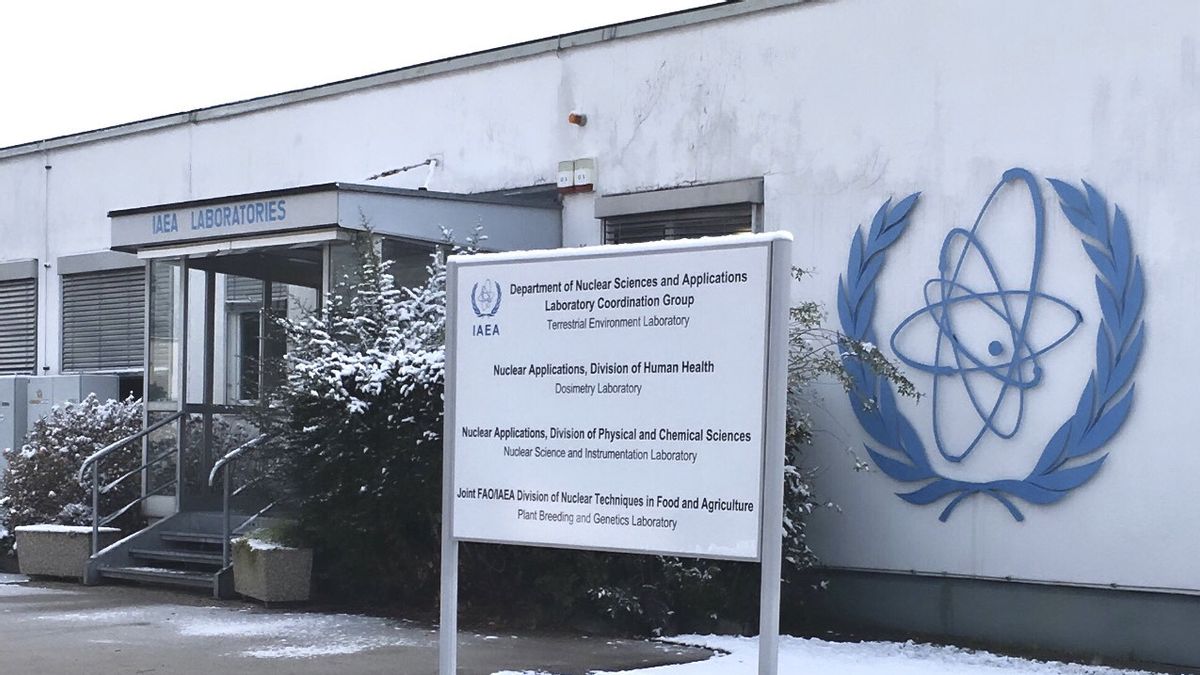JAKARTA - Iran has taken the surprising step of removing all International Atomic Energy Agency (IAEA) monitoring equipment, which was installed under the 2015 Nuclear Deal, as all parties are working to revive the deal.
Iran has warned of retaliation if the 35-member IAEA Board of Governors passes a resolution drafted by the United States, France, Britain and Germany, criticizing Tehran for continuing to fail to explain traces of uranium found at undeclared sites. The resolution was passed by a majority on Wednesday evening.
Iran told the agency overnight it plans to remove equipment, including 27 IAEA cameras on Thursday, which is 'basically all' additional monitoring equipment installed under the 2015 deal, which goes beyond Iran's core obligations to the agency, Grossi told the conference. pers.
That leaves a window of opportunity of three to four weeks to restore at least some of the monitoring that was removed, or the IAEA will lose the ability to unify Iran's most important nuclear activities, Grossi said.
"I think it will be a fatal blow (to revive the deal)," Grossi said of what would happen if the window was not used.
A classified IAEA report to member states late Thursday seen by Reuters said IAEA watchdogs had removed IAEA cameras at two locations and placed them in storage under the IAEA seal there.
Meanwhile, US officials who spoke on condition of anonymity said that after a period of three or four weeks, Iran could still provide additional information to allow for a revival of the nuclear deal.
"We are not on death watch (for the next) three to four weeks," a senior US official said, saying the deal could be revived, although the longer Iran withholds access, the more transparency it has to provide the IAEA.
Indirect talks between Iran and the United States about reviving the 2015 deal have stalled since March.
"You think we will step back from our position if you pass a resolution in the Board of Governors (IAEA)? In the name of God and the great nation of Iran, we will not step back from our position," Iranian President Ebrahim Raisi said in his speech.
It is known that since President Donald Trump pulled Washington out of the deal and reimposed sanctions on Tehran in 2018, Iran has violated many of the deal's limits on its nuclear activities. It enriches uranium to near weapons grades.
Meanwhile, Western countries warn that they are getting closer to being able to sprint towards making a nuclear bomb. Iran denies wanting it.
France, Britain and Germany, called E3, condemned Iran's actions on Thursday and urged it to fully continue its cooperation with the watchdog and end its nuclear escalation.
"These actions only exacerbate the situation and complicate our efforts to restore full implementation of the JCPoA. They also further cast doubt on Iran's commitment to a successful outcome," E3 said in a statement that did not include the United States.
Washington issued a separate statement, stopping condemning Iran's actions and urging Iran to opt for diplomacy and de-escalation.
Iran has been storing data recorded by additional monitoring equipment since February last year, meaning the IAEA can only hope to access it at a later date. Grossi said it was unclear what would happen to that data now.
He added, however, that more than 40 IAEA cameras would remain operational as part of core monitoring in Iran that preceded the 2015 deal.
The English, Chinese, Japanese, Arabic, and French versions are automatically generated by the AI. So there may still be inaccuracies in translating, please always see Indonesian as our main language. (system supported by DigitalSiber.id)













